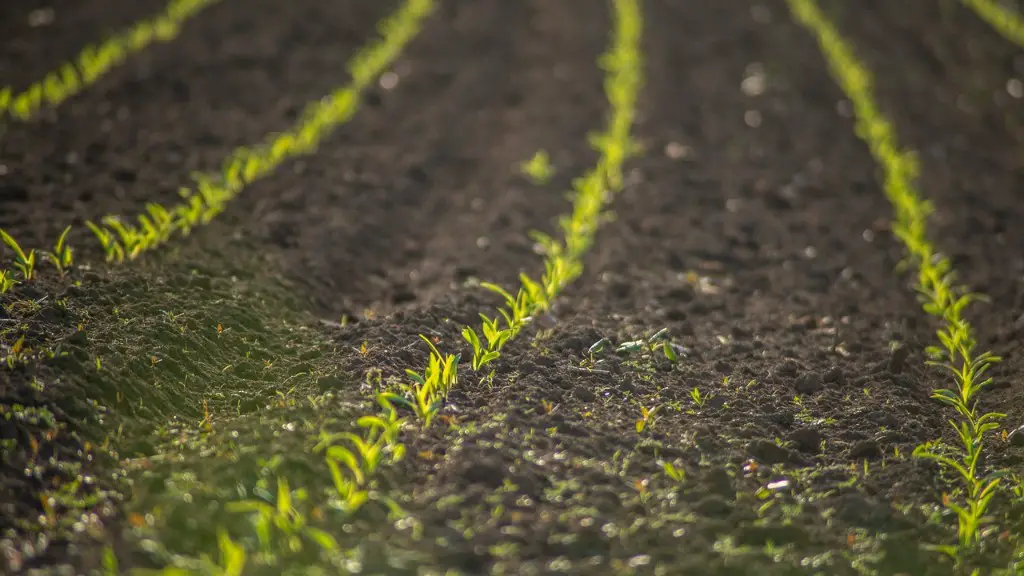Agriculture universities are educational institutions that specialize in the study of agriculture and related sciences. They provide courses in various branches of agricultural sciences such as agronomy, horticulture, forestry, and crop science as well as related disciplines like plant and animal genetics, agribusiness, and food science. There are many countries across the globe that have established universities specifically dedicated to the field of agriculture.
The United States has both public and private universities that specialize in this field. Famous universities like the University of California-Davis, Michigan State University, the University of Florida, and Texas A&M University are some of the most renowned public institutions in the country that offer robust programs in agricultural studies. Other states like Illinois, Pennsylvania, New York, and Ohio also offer accredited institutions dedicated to the study of agriculture.
In Europe, some of the most popular agricultural universities are the University at Wageningen, the Swedish University of Agricultural Sciences, the University of Hohenhelm, and the University of Agricultural Sciences in Vienna. Countries like France, Germany, Italy, Spain, England, and Poland also offer high-quality institutions dedicated to the education of students in the field of agriculture.
In Asia, renowned universities like the Chinese Academy of Agricultural Sciences, the National Taiwan University of Science and Technology, India’s Central Agriculture University, and the National University of Singapore are amongst the leading academic institutions for the study of agriculture. Other countries like South Korea, Indonesia, Thailand, and Japan have established top-tier universities dedicated to the advancement of the field.
Agriculture universities are not limited to developed countries, as there are quite a few in the African continent. For instance, the University of Pretoria in South Africa operates multiple campuses across the country and offers numerous degree programs in the field of agriculture. Other countries like Zimbabwe, Morocco, Kenya, Ghana, and Nigeria also have well-known universities that provide courses in agriculture.
Agricultural Degrees and Programs
Agricultural universities offer degree programs at the associate, bachelor, master, and doctoral levels, with specialized degrees and certificates also available. The course curriculum usually covers aspects like plant biology, plant production, pest control and management, soil science, animal science, nutrition, agricultural engineering, and agricultural business.
Furthermore, students enrolled in a degree program at the agricultural university have the opportunity to pursue practical experience and gain hands-on skills for the career in the field. In addition to classroom studies, each student is expected to fulfill the internship requirements in order to gain work experience and develop industry contacts. This enables them to hone their skills and become professionally competent.
An agricultural degree program also cultivates critical thinking, problem solving, and communication skills in the students, preparing them to tackle any professional challenge with ease. Moreover, studying at a reputable agricultural university also enhances the career prospects of the individual. Many of the employers in the field prefer to hire individuals who have completed their education from a university of good standing.
In addition to the academic courses, some of the agricultural universities also offer a range of extracurricular activities that students can participate in. From playing sports to joining student-run clubs to taking up a leadership role in student government, there are an array of activities available to the students that cultivate their personal growth while providing an enriching college experience.
Additional Benefits of Studying at an Agricultural University
Agricultural universities offer numerous student-centric measures, such as career advising, guidance on professional job placements, and access to internships and research opportunities. These measures help build the student’s professional skills, enabling them to secure employment after they complete their studies. Furthermore, they also provide excellent financial aid programs, and some programs even offer scholarships.
Many agricultural universities also have established alumni associations that cater to their graduates, allowing them to maintain close ties with their alma mater and help the institution grow. These associations also bring together alumni from across the globe to take part in networking activities, mentor and support new students, discuss industry trends, and find job and career opportunities.
Overall, agricultural universities offer students a comprehensive academic experience and enriching opportunities, preparing them for a successful professional career. With the advancements in technology and new approaches to farming, agricultural universities have become an invaluable resource for the modern agricultural industry.
Research and Professional Development
Agricultural universities also serve as a platform for research and development, providing a number of research facilities and equipment required to undertake state-of-the-art projects. Students enrolled at these institutions can avail of mentorship programs, innovation centers, and access to advanced scientific and computer laboratories.
In addition to academic projects, the research and development initiatives carried out at the agricultural universities often translate into market-ready products. This is beneficial to the industry, as it helps in the diffusion of innovations and technologies into the sector. Moreover, it also helps to introduce new products and services to the market, further enhancing the potential growth of the agricultural industry.
Many of the research initiatives at the agricultural universities are funded by private organizations, research institutes, and government initiatives. In many countries, financial support from these sources enables students to carry out their projects without additional cost and in some cases, earn additional stipends. This kind of funding enables the students to focus solely on their research, enabling them to pursue their academic interests and professional pursuits in a proactive academic environment.
Professors associated with the university also benefit from the research activities carried out at the institution. They use the acquired knowledge and data to enhance their own understanding of the field and take part in activities like teaching, consultancy, and advisory roles. Professional recognition gained through such activities further spearheads the development of the agricultural industry.
Conclusion
The presence of an agricultural university not only benefits the students and faculty, but it also augments the strength of the agricultural industry. Having an educational infrastructure dedicated to the growth of the field helps to create a pool of talented professionals who are constantly working towards the betterment of the sector. This ultimately contributes to the overall growth and transformation of the agricultural sector.




